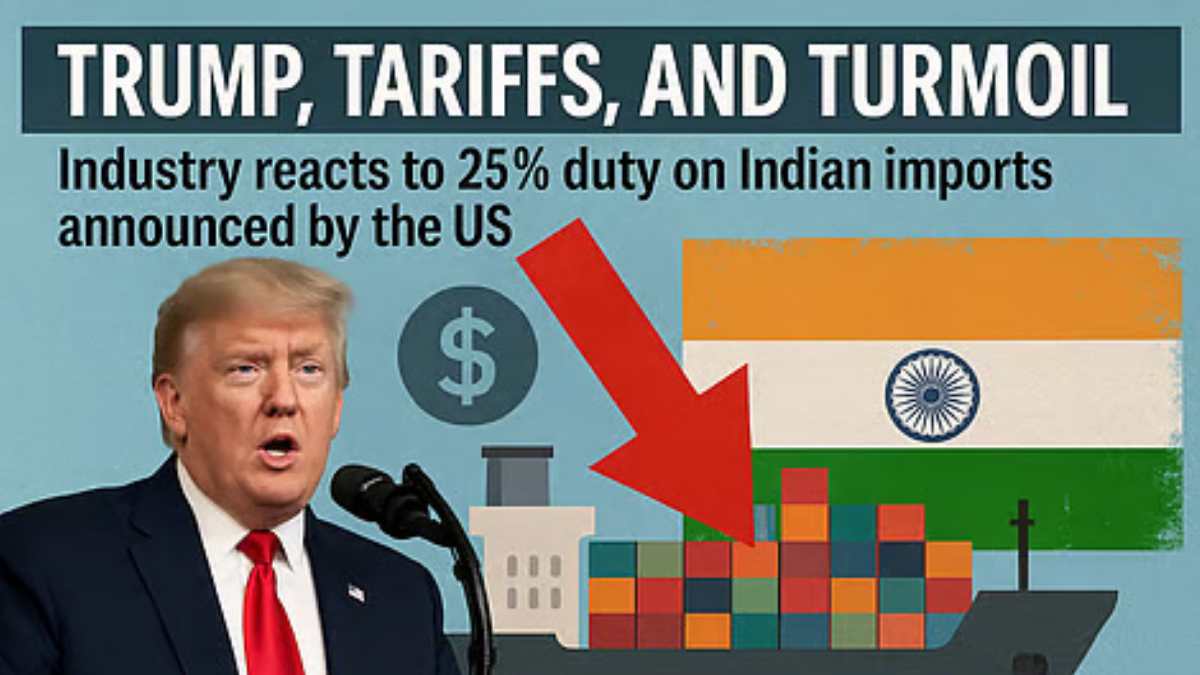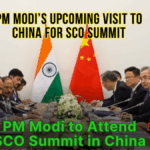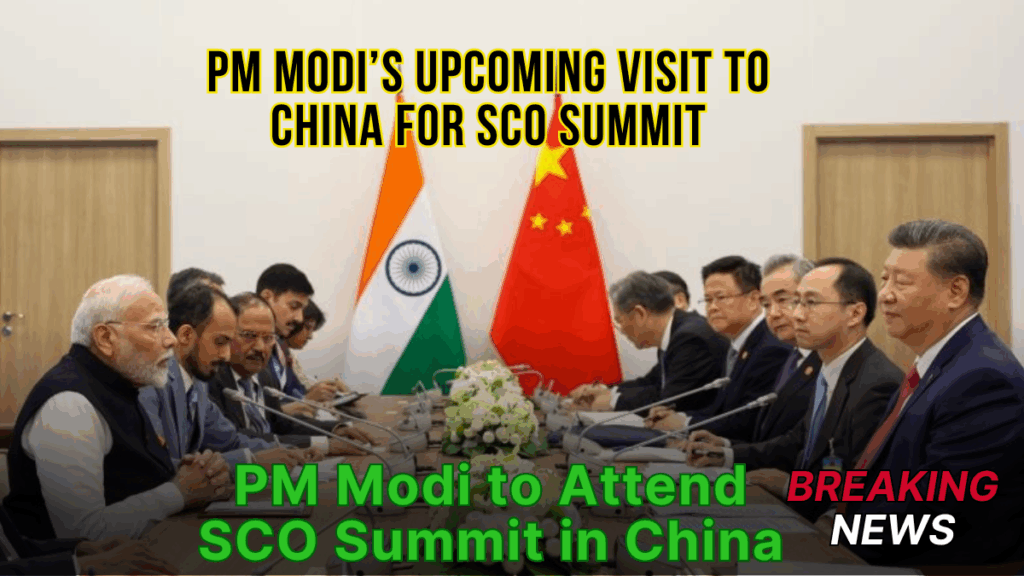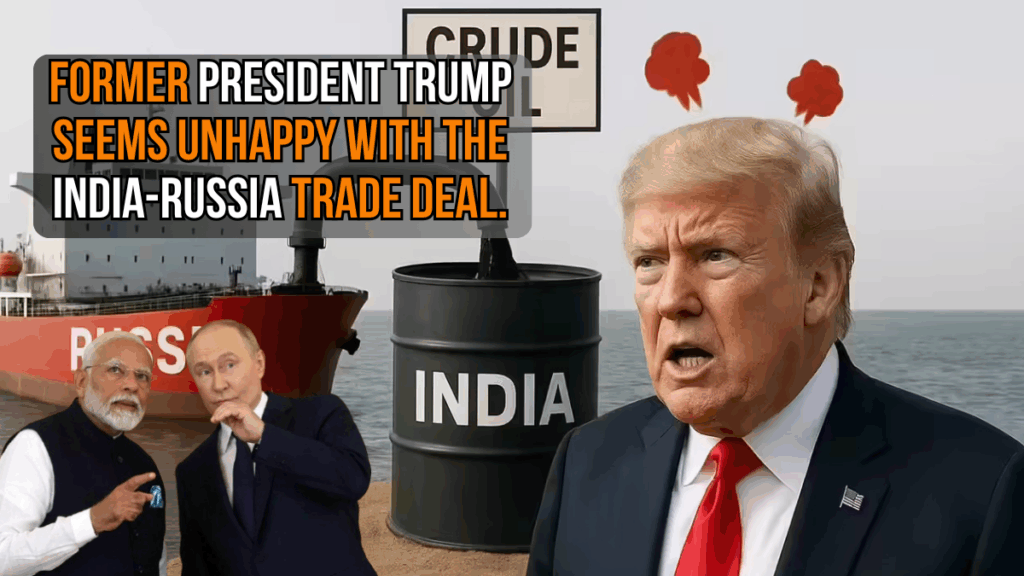The recent announcement by former US President Donald Trump to impose a 25% tariff on Indian imports has sent shockwaves across India’s economic and political spheres. More alarming is the unspecified “penalty” he threatens to impose on India for its continued import of Russian oil. These developments have raised serious concerns about the future of India’s booming IT services sector and its broader white-collar economy.

Summary Table: Trump Tariffs Could Shatter India’s IT Industry

Key Details |
Information |
|---|---|
Announcement |
25% tariff on Indian imports by Trump |
Additional Penalties |
Unspecified penalties for importing oil and defense materials from Russia |
Investor Warning |
IT industry and white-collar economy could collapse |
Affected Sectors |
IT exports, tech services, student visas |
Indian Government’s Response |
“Taken note”, engaged in trade agreement talks |
Suggested Solution |
Diplomatic breakthrough needed to avoid economic hardship |
Source of Announcement |
Social media post by Donald Trump |
Official Site |
Investor D Muthukrishnan’s Dire Warning
Investor and market commentator D Muthukrishnan took to social media to sound the alarm about Trump’s aggressive stance on India. His warning highlights the real economic risks that could unfold if the proposed tariffs and penalties materialize.
“India would not yield, and Trump would get more aggressive. Everyone is talking about 25% tariff on products. We don’t know what is going to be added as penalty for importing oil from Russia.”
According to Muthukrishnan, the real “elephant in the room” is not merchandise trade but the huge volume of services and IT exports that India supplies to the United States.
Why India’s IT Sector is Vulnerable
India’s IT industry contributes significantly to GDP and provides employment to millions. Companies like TCS, Infosys, Wipro, and HCL rely heavily on contracts with American businesses, making them susceptible to any policy shifts in the US.
Key Dependencies:
- Around 60-70% of India’s IT export revenues come from the US.
- A large share of white-collar jobs in India are linked to US tech contracts.
- Indian IT professionals also dominate the H-1B visa program, which Trump previously targeted.
Muthukrishnan emphasized that should the US decide to impose tariffs or restrictions on services, it could lead to a collapse of the white-collar economy in India.
Student Visas and Talent Migration at Risk
Muthukrishnan also pointed out that Trump’s previous policies have already made it difficult for Indian students and tech professionals to move to the US. These include:
- Reduced issuance of student visas for Indian applicants
- Stricter H-1B visa norms
- Pressure on US companies to “onshore” their operations
“Trump already not giving visas to meritorious Indian students, asking tech companies to stop expanding in India and recruiting employees from our country.”
Trump’s Trade Strategy and the Russia Factor
Trump’s latest tariff announcement is not just about trade imbalance. It includes a geopolitical element — punishing India for continuing to buy Russian oil and defense equipment despite Western sanctions.
“All things not good! India will therefore be paying a tariff of 25 per cent, plus a penalty for the above, starting on August first,” Trump posted on social media.
His post labeled India’s trade policies as “strenuous and obnoxious,” further straining the bilateral relationship.
India’s Strategic Oil Imports from Russia
India has significantly increased its oil imports from Russia following the Ukraine war. Before 2022, Russian crude made up only 0.2% of India’s imports. As of mid-2024, this number has surged to over 40%.
This shift:
- Helped India save billions amid global oil price volatility
- Eased domestic inflation pressures
- Offered a reliable energy alternative amid unstable West Asia
However, this same strategy has attracted criticism from the West and now could lead to punitive trade measures from the US.
Indian Government’s Response
India has officially acknowledged Trump’s statements. A Ministry of Commerce spokesperson said:
“India and the US have been engaged in negotiations on concluding a fair, balanced and mutually beneficial bilateral trade agreement over the last few months. We remain committed to that objective.”
Although no immediate retaliation has been announced, internal assessments are underway to gauge the broader impact of Trump’s tariffs and penalties.
What’s at Stake?
If Trump’s Policies Take Effect:
- Indian IT firms may lose a significant chunk of US business
- White-collar unemployment could rise
- Student migration to the US could slow further
- Trade relations between India and the US could deteriorate
This scenario could also trigger a broader realignment in India’s foreign policy and trade partnerships, pushing it closer to alternative markets in the EU, Southeast Asia, and Africa.
FAQs: Frequently Asked Questions
Q1. What has Donald Trump announced about India?
Ans. Trump announced a 25% tariff on Indian imports and an additional penalty for oil and defense imports from Russia.
Q2. Why is this concerning for India’s IT sector?
Ans. A large part of India’s IT revenue comes from the US. New restrictions or tariffs could lead to mass job losses and reduced business for companies like TCS and Infosys.
Q3. Has India responded to the announcement?
Ans. Yes, the government has acknowledged the statement and is currently reviewing its implications while continuing trade negotiations with the US.
Q4. What could be the penalty for Russian oil imports?
Ans. Trump has not specified the exact penalty yet, but investors warn it could be steep and damaging.
Q5. Are Indian students affected by Trump’s policies?
Ans. Yes, previous Trump-era policies made it harder for Indian students to get visas, and similar restrictions may return.
Conclusion
Investor D Muthukrishnan’s cautionary message underlines the growing risks India faces as Trump re-enters the geopolitical stage with aggressive trade policies. The IT sector, white-collar jobs, and educational aspirations are all potentially at stake. While the Indian government works to safeguard its interests through diplomatic channels, businesses and workers must prepare for a potentially turbulent economic period.
For More Information Click Here










